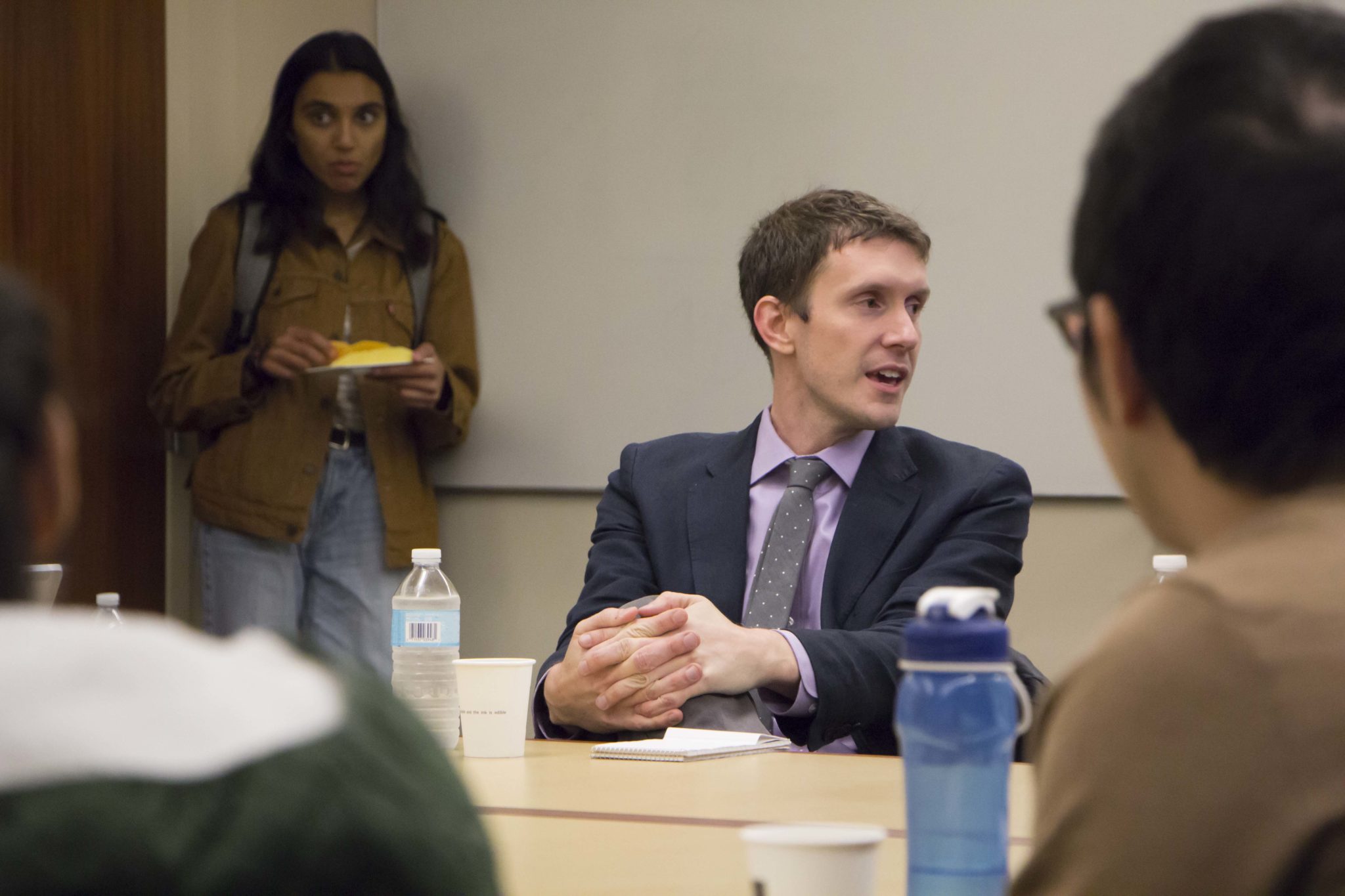
On Wednesday, the Poynter Fellowship in Journalism hosted Brad Plumer, a climate team reporter from the New York Times, for a discussion on climate change.
Titled “A Conversation about Climate and Energy Policy in an Era of Rapid Change,” the talk attracted approximately 80 students, professors and New Haven residents to an auditorium at the Institution for Social and Policy Studies. Plumer focused the conversation on the intersection of climate change, politics, agriculture, renewable energy and his career as a journalist.
“I still find it mystifying that people will answer my questions,” he said. “Sometimes I talk to scientists or people who are working in some extremely obscure and wonky fields, and they are just happy to sit for an hour and talk to me about it.”
Plumer said that he became interested in environmentalism after reading the 2007 report published by the United Nations Intergovernmental Panel on Climate Change. He noted that the way that the report explored environmental problems from the angles of technology, human behavior, economics and world politics inspired him to become a climate change journalist.
According to Plumer, tackling environmental problems requires more than just attention from the media. Specifically, Plumer expressed concern regarding potential refugee crises that climate change may induce. He said that problems caused by climate change, such as crop failures in Africa and submerging of significant land mass in Bangladesh, might have serious destabilizing effects on regional and world economies.
Plumer also affirmed the efforts of national governments who engage with climate change concerns indirectly. He noted that even countries that are ambivalent towards climate change often take steps to address the issue out of public health concerns. Specifically, Plumer cited examples of cities in Europe, where experimental policies such as the designation of car-free zones in urban centers are being instituted to protect the public against the dangers of air pollution.
The discussion also dealt with the pros and cons of nuclear energy as a potential substitute for conventional fossil fuels.
“The biggest problem for nuclear power is not public acceptance,” Plumer said. “The biggest obstacle here is that it’s really expensive. Georgia is building a new nuclear power plant for $24 billion. It’s had massive delays, massive cost overruns, just because the industry has atrophied for so long.”
Still, Plumer noted that various startups around the country that are working to build cheaper, smaller-scale nuclear reactors that might hold the key to making nuclear energy a more accessible alternative to conventional forms of energy.
Plumer also emphasized the importance of presenting accurate information to the public to better inform them of the debates on climate science.
“There are a lot of real questions out there,” he said. “You want to make sure you’re finding different scientists and getting all their respective ideas. Balance is the wrong way to think about it. You want an accurate story.”
Attendee Eric Rowe, a New Haven resident interested in sustainability programs and the energy industry, said that the talk reaffirmed his optimism about society’s ability to tackle climate change.
“We are trying to devise ways of curbing the problem without knowing exactly the methods of doing so,” Rowe said. “At least it gives promise to the fact that we’re trying to continue to think about things without giving up hope, but I’m optimistic that technology will continue to be better. Either these huge benefactors can invest in them or the government will be pressed to do so for social and economic reasons.”
Katrina Starbird ’22, another attendee, said that the event provided her with an intriguing opportunity to explore the interplay between politics and climate action. She said that Plumer’s analysis of the influence of government style and potential selling points the government can use for its constituents helped broaden her understanding of the topic.
The Poynter Fellowship in Journalism will hold an event featuring journalist and director Sofia Fritz at the Whitney Humanities Center on Nov. 8.
Jake Tae | jake.tae@yale.edu .







